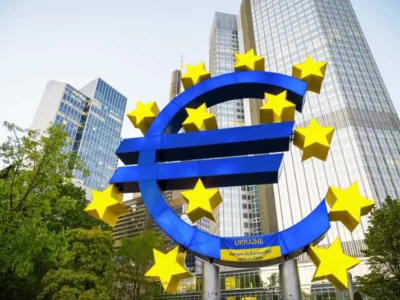
The Golden Visa in Spain is a residence permit for foreign investors who make significant investments in the country. Introduced in 2013, it has allowed many non-European citizens to obtain residency in exchange for investment. Recently, the government has removed the option to obtain this visa through the purchase of real estate. This change aims to reduce speculation in the housing market and ensure access to housing for local citizens.
What is the Golden Visa in Spain?
The Golden Visa in Spain was created to attract foreign investment. It has been subject to various legislative changes that have affected its operation and application.
Definition and Concept
The Golden Visa, also known as the “Golden Visa,” is a residence permit that Spain grants to non-European Union citizens who make a significant investment in the country. This type of visa allows investors and their families to reside in Spain and move freely within the Schengen Area.
History of the Golden Visa in Spain
The Golden Visa program in Spain was implemented in 2013 as a tool to encourage foreign investment in the country following the economic crisis of 2008. Since its introduction, it has attracted many foreign investors, mainly from countries such as China, Russia, Venezuela, and Mexico.
The creation of this program responded to the need to attract foreign capital to revitalize key sectors of the Spanish economy, such as real estate and finance. Initially, it contemplated several forms of investment, including the acquisition of real estate, which proved to be a popular option among investors.
Recent Changes in Legislation
In April 2024, the Spanish government announced the elimination of the option to obtain the Golden Visa through the purchase of real estate, arguing that this measure seeks to reduce speculation in the real estate market and facilitate access to housing for local residents.
The President of the Government, Pedro Sánchez, highlighted that less than 0.1% of real estate sales since 2013 were made under this program, thus minimizing the direct impact on the market. However, the elimination of this option has significant symbolic value and has generated various reactions in different sectors of society.
Despite these changes, other forms of investment, such as financial assets and business projects, remain valid for obtaining the Golden Visa. These alternatives allow investors to continue benefiting from the advantages offered by this type of residence, although they can no longer do so through the purchase of properties.
Types of Investments Admitted for the Golden Visa
Golden Visas in Spain are granted through various forms of investment, each with its own specific requirements and procedures.
Real Estate Investment
Real Estate Investment Requirements
To obtain the Golden Visa through real estate investment, the purchase of one or more properties real estate with a minimum value of 500,000 euros is required. These properties can be residential or commercial. It is essential that the investment is free of charges and encumbrances.
The investor must demonstrate the ownership and title of the property with a domain certificate from the Property Registry. Additionally, they must present evidence that the funds used for the purchase come from their own resources.
Property Purchase Procedure
The process for acquiring a property and applying for the Golden Visa includes the following steps:
- Property selection: The investor can choose the property remotely or through a visit to Spain.
- Signing of the purchase contract: This document must be authenticated before a notary.
- Payment of the property: The transfer of funds must be made from a bank account in the name of the investor.
- Property registration: The deed of sale must be registered in the Property Registry.
Domain and Charges Certification from the Registry
Once the purchase is completed, it is essential to obtain a domain and charges certificate from the Property Registry. This document confirms that the investor is the legal owner of the property and that it is free of liens and encumbrances. This certificate is an indispensable requirement for the application for the Golden Visa.
Financial Assets
Investment in Spanish Public Debt
Another option for obtaining the Golden Visa is by investing in Spanish public debt. The investor must acquire Spanish state securities with a minimum value of two million euros. These securities can be bonds or any other debt instrument issued by the Spanish government.
Participations in Spanish Companies
The investor can choose to acquire a minimum of one million euros in shares or social participations of Spanish companies. These companies must have a real business activity, which means they must be operational and conducting economic activities in the country.
Investment in Investment Funds
Another way to obtain the Golden Visa is to invest one million euros in investment funds or venture capital funds established in Spain. These funds must comply with Spanish regulations and be registered with the National Securities Market Commission (CNMV).
Bank Deposits in Spanish Entities
The investor can opt to deposit one million euros in a bank account of a financial institution based in Spain. This type of investment requires maintaining the funds in the bank for a defined period to be considered valid for the application of the Golden Visa.
Business Project
Job Creation
Establishing a business project that contributes to job creation in Spain is a valid option for the Golden Visa. The project must demonstrate its ability to generate employment and its economic viability.
Significant Economic Impact
The business project must also have a significant economic impact in the region where it is implemented. This can include the revitalization of depressed areas, contribution to technological development, or the introduction of innovations that benefit the local or national economy.
Financial Intermediary Certification
To support the business project, it is necessary to have a certification from a financial intermediary registered in Spain. This document endorses the financial viability of the project and the investor’s ability to manage it properly. The certification must include a detailed business plan and evidence of the financial resources available.
Application Process for the Golden Visa
The process for obtaining the Golden Visa in Spain involves several detailed steps and the collection of various documentation.
First Steps
Signing and Payment of the Initial Agreement
The first step in obtaining the Golden Visa is the signing of an initial agreement between the applicant and the entity that will assist in the process. This agreement includes the identification of expectations and requirements, as well as the initial payment of the corresponding fees.
Selection and Purchase of Property (if applicable)
For those opting for real estate investment, the selection and purchase of the property is the next step. The property can be selected remotely or through a visit to Spain with a tourist visa. Once the property is selected, the purchase proceeds.
Required Documentation
The submission of the application for the Golden Visa requires the collection of a series of essential documents, which must be presented to the Spanish authorities.
Identification and Passport
The applicant must present a copy of their valid passport and any other form of official identification that proves their identity and nationality.
Criminal Record Certificate
It is necessary to provide a criminal record certificate covering the last five years, issued by the authorities of the applicant’s country of origin or the country where they have primarily resided during that period.
Financial Documents
Depending on the type of investment made, the applicant must present documents that certify the availability and legality of the funds destined for the investment, such as bank statements, purchase-sale contracts, or certificates of investments made.
Health Certification
The applicant must present a medical certificate that certifies that they do not suffer from any serious illness that may have repercussions on public health according to international standards.
Submission of the Application
Process at the Spanish Consulate
The formal application must be submitted at the Spanish consulate corresponding to the applicant’s country of residence. The consulate will be responsible for reviewing the submitted documentation and conducting the initial verifications.
Fees and Government Payments
The applicant must pay the corresponding fees for the processing of the Golden Visa application. These fees may vary depending on the consulate and the type of investment made.
Review and Approval
Evaluation of the File
Once the application is received, the Spanish authorities will proceed with the complete evaluation of the file. This process includes the verification of the documents, the validity of the investments made, and the certification of the authenticity of the data provided.
Waiting Times
The waiting time for the resolution of the application may vary, but it is usually several months. During this period, the applicant may be required to provide additional information or supplementary documents.
Post-Approval Requirements
After the approval of the Golden Visa, the applicant will receive a temporary residence visa with an initial validity of two years. This residence is renewable for additional periods of up to five years, provided that the investment and residence conditions established in the regulations are maintained.
Benefits of the Golden Visa
The Golden Visa in Spain offers a series of significant advantages for foreign investors and their families.
Free Access to the Schengen Area
One of the most notable benefits of the Golden Visa is free access to the entire Schengen Area. This allows free movement without a visa among 27 European countries, facilitating business and personal travel throughout the region.
Residence for Family Members
The Golden Visa not only benefits the main investor but also extends the advantages to direct family members. This includes the spouse and children, providing an opportunity for joint residence in Spain.
Spouse
The spouse of a Golden Visa holder automatically receives residence in Spain. This allows them to live and work in the country, in addition to enjoying the same rights of mobility in the Schengen Area.
Children Under 18 Years
Children under 18 years also benefit from the Golden Visa. This extension allows them to reside in Spain and access education and other public services without additional restrictions.
Dependent Adult Children
In some cases, adult children over 18 years who are economically dependent on the applicant can also be included. For this, they must provide documentation that demonstrates their financial dependency, allowing them to reside in Spain under the same conditions.
Possibility of Obtaining Spanish Citizenship
The Golden Visa offers a long-term path to Spanish citizenship. After a period of continuous residence, it is possible to apply for citizenship and obtain full rights as a Spanish citizen.
Requirements for Citizenship
To qualify for Spanish citizenship, certain requirements must be met, including:
- Continuous residence in Spain for at least 10 years.
- Demonstrating good civic conduct through a criminal record certificate.
- Sufficient integration into Spanish society, which may involve demonstrating basic knowledge of the language and culture.
Citizenship Application Process
The process for applying for Spanish citizenship begins with the submission of a formal application to the Civil Registry. The steps include:
- Collecting and submitting the required documentation.
- Delivering certificates of residence and criminal records.
- Conducting a personal interview, in some cases, to assess integration into Spanish society.
- Waiting for the evaluation and final decision, which can take several months.
Upon approval, citizenship is granted, and the applicant can acquire the Spanish passport, benefiting from all the rights and duties of citizenship.
Economic and Socioeconomic Impact of the Golden Visa
The Golden Visa has had significant effects on various aspects of the Spanish economy and society, especially in the real estate market and the attraction of foreign investments.
Foreign Investment in the Real Estate Market
Investment Data Since 2013
Since the introduction of the Golden Visa in 2013, Spain has received a considerable amount of foreign investments in the real estate sector. This program has allowed many non-European Union citizens to acquire properties in Spain, with a minimum of 500,000 euros of investment per property.
Between 2013 and 2023, it is estimated that more than 6,000 Golden Visas were issued thanks to real estate investments. Although they represented a relatively small fraction of the total real estate transactions, the impact in key urban areas was significant. Madrid, Barcelona, and the Balearic Islands have been the regions with the highest concentration of investments under this scheme.
Effect on Housing Prices
The impact of foreign investment on housing prices has been notable. In major cities and tourist destinations, the demand from foreign investors has contributed to the appreciation of housing prices. This increase has benefited existing homeowners but has also made access to housing more difficult for locals.
Studies have shown that areas with high demand for Golden Visas have experienced an increase in property prices of up to 20% compared to regions without this type of demand. This phenomenon has fueled the debate about the true social cost of the program in terms of housing accessibility.
General Economic Benefits
Job Creation
The introduction of the Golden Visa has not only attracted foreign capital but has also contributed to job creation. The acquisition of properties and investment in business projects have generated direct and indirect jobs in several sectors such as construction, tourism, and services. In particular, the increase in real estate activity has boosted the demand for professional services such as lawyers, real estate agents, and builders.
Increase in Local Consumption
Beneficiaries of the Golden Visa, by settling in Spain, increase consumption in the local economy. From spending on consumer goods, education, healthcare, and entertainment, their presence has had a multiplier effect on the economy. Areas that have seen an influx of foreign investors have recorded notable growth in the opening of new businesses and services to meet this demand.
Additionally, investors who bought properties generally carried out renovations or improvements, contributing even further to the local economy through hiring and purchases of construction materials.
Controversies and Criticisms
Speculation and Real Estate Bubble
The Golden Visa has been criticized for being a factor contributing to speculation in the real estate market. Critics argue that the increase in demand for high-value properties artificially drove prices up, creating what many feared could be a new real estate bubble. This criticism has focused on the idea that the homes purchased were not always intended for residential use, but for speculative investment.
Pressure on Housing in Urban Areas
A visible consequence of the Golden Visa has been the pressure on the housing supply in urban areas, especially in cities like Madrid and Barcelona. The increase in prices has made housing less accessible for local residents, exacerbating an already existing crisis in housing access. Young people and families with medium and low incomes have been most affected by this situation.
The increase in investors interested in luxury properties has distorted the market, focusing construction and rehabilitation of housing on this high-end segment. This has led to a decrease in the supply of affordable housing, further complicating the situation for Spanish citizens seeking to buy or rent a property.
Alternatives to the Golden Visa
Following the elimination of the Golden Visa for real estate acquisition, there are other ways to obtain residency in Spain and countries with comparable programs.
Other Ways to Obtain Residency in Spain
Work Visa
The work visa allows foreigners to reside and work in Spain. To apply for it, it is necessary to have a job offer from a Spanish company. The company must demonstrate that the position cannot be filled by a local worker, justifying the need to resort to foreign labor. The essential documents that must be presented include the employment contract, the criminal record certificate, and the medical report.
This type of visa is renewed annually and, after five years of continuous residence and work, it is possible to apply for permanent residency. Applicants must be aware of the contractual and labor demands, as well as the conditions for renewal.
Family Reunification
Family reunification is another option for obtaining residency in Spain. This permit facilitates the reunification of families where at least one member already resides legally in the country. Beneficiaries can be spouses, children under 18 years of age, or older children who are economically dependent on the main applicant.
To process this visa, strong evidence of the family link, the legal residence of the reunifier, and sufficient economic means to support the family members coming to Spain must be provided. A key point is to demonstrate the ability to provide adequate housing.
Comparable Programs in Other Countries
Portugal
In Portugal, the Golden Visa program is still in effect, albeit with certain restrictions. Since January 1, 2022, real estate investments to obtain the Golden Visa are limited to specific areas, excluding the regions of Lisbon, Porto, and part of the Algarve. Options include investments in real estate in less densely populated areas, investment funds, capital transfer, and job creation.
The procedure involves making the investment and submitting the application, which is rigorously evaluated. Applicants and their families can obtain residency, and after five years, they could opt for Portuguese citizenship.
United Kingdom
The United Kingdom eliminated its Golden Visa program in 2022, prior to its exit from the European Union. Now, those interested in residing in the country must opt for other types of permits, such as the Innovator visa or the Start-Up visa. These options require the presentation of an innovative and viable business plan, endorsed by a certified entity.
The Innovator visa requires a minimum investment of 50,000 pounds sterling and the creation of jobs for local residents. The initial stay is three years, renewable based on the performance of the business and compliance with the requirements.
Malta
Malta still offers its residency by investment program, where applicants must invest in real estate, either by renting a dwelling with a minimum lease duration or by acquiring real estate. Additionally, a non-refundable contribution to Malta’s National Development and Social Fund and the purchase of government bonds or shares is required.
The process includes the evaluation and background check of the investor and their family members. Malta is known for the speed of its process, with possibilities of obtaining residency within six months from the initial investment. After five years, candidates can apply for permanent residency.
Reactions to the Elimination of the Golden Visa
The announcement of the elimination of the Golden Visa for real estate purchase has generated a series of reactions from various sectors, including the real estate, political, and public opinion sectors.
Opinions from the Real Estate Sector
Impact on Supply and Demand
Within the real estate sector, reactions have been varied. Some real estate agents consider that the measure will not have a significant impact, as purchases made through Golden Visas represented a minimal fraction of the total market. However, others warn of possible negative effects on the supply and demand of luxury properties, especially in urban areas such as Madrid, Barcelona, and the Balearic Islands.
The elimination of this residency path could lead to a temporary decrease in the demand for high-value properties. This, in turn, could affect the prices of this category of real estate, in addition to influencing the number of transactions closed annually in certain market segments.
Expert Valuation
Experts in the real estate market have given various valuations on the elimination of the Golden Visas. Some, like Francisco Inareta, spokesperson for the Idealista portal, point out that the housing problem in Spain was not caused by the golden visa program, but by an imbalance between supply and demand. According to him, the measure is more symbolic than effective.
On the other hand, Nicolás San Román of iCapital Wealth Management Solutions maintains that, although a real estate investment attraction channel is lost, other types of investment will remain available, such as investment in financial assets and business projects. According to his perspective, investors will adapt their strategies without abandoning the Spanish market.
Political Reactions
The announcement has had significant repercussions in the political sphere. The President of the Government, Pedro Sánchez, justified the measure by saying that it seeks to guarantee the right to housing and prevent real estate speculation.
Opposition parties and some sectors of Congress have criticized the decision, calling it showy and pointing out that it does not solve the structural problems of the real estate market. They argue that the elimination of the Golden Visas does not address the root problem and that it is necessary to tackle the lack of supply and rental regulation.
Public Opinion
Public opinion has also shown diverse reactions to the elimination of the Golden Visas. Many people in areas affected by real estate speculation, such as Madrid and Barcelona, see the measure as positive, hoping that it will contribute to facilitating access to housing.
However, not everyone is convinced. Some citizens believe that the measure could discourage foreign investment, which may have negative repercussions on the local economy. Other sectors of the population argue that more comprehensive policies are needed to address the housing access problem and that the elimination of the Golden Visas is just one step among many necessary ones.
Future Perspectives of Residency by Investment in Spain
Following the elimination of the real estate option for the Golden Visa, the landscape of residency by investment in Spain changes significantly.
Strategies of the Spanish Government
The Government of Spain has adopted several strategies to reconfigure its residency by investment policy. Firstly, an increase in the promotion of other forms of investments more aligned with the creation of tangible economic benefits for the country is expected.
For example, greater emphasis will be placed on investment in financial assets and business projects. The Government has mentioned that investment in Spanish public debt and support for national companies can offer robust alternative channels to attract foreign capital.
Equally important will be stricter regulation and monitoring of these investment processes to ensure that they meet the economic and social objectives of the country. Measures will also be implemented to facilitate the application process and adaptation to new regulations, with the goal of attracting high-quality investors who positively contribute to the Spanish economy.
New Investment Policies
In the wake of the elimination of Golden Visas for real estate purchases, the Executive is designing new investment policies that directly impact strategic sectors. The intention is to redirect investments towards areas that promote sustained and sustainable economic growth.
Some of the main policies will include:
- Promotion of start-ups and technology companies.
- Tax incentives for investment funds and venture capital.
- Public financing programs for business projects that generate employment and regional economic development.
- Streamlining of bureaucratic procedures and greater communication with financial entities to ensure a more agile and efficient flow of investment.
Real Estate Market Trends
The Spanish real estate market begins a process of adaptation due to the elimination of the Golden Visa option for property acquisition. This decision is expected to moderate speculation and high prices in certain urban areas.
Impact on Supply and Demand
A moderation in the demand for high-value properties is expected, which could lead to a price adjustment in premium urban areas. The supply of luxury housing previously targeted at foreign investors with golden visas could now focus on the local consumer and other markets.
Reevaluation of Investments
Foreign investors might redirect their interest towards other types of investments within Spain, such as business projects or financial assets. This could alleviate some of the pressure on the real estate market and promote broader economic diversification.
Tips and Recommendations for Potential Investors
When investing to obtain a Golden Visa in Spain, it is essential to consider a series of tips and recommendations to maximize the chances of success and minimize risks.
Legal Advice
Importance of a Lawyer
Having a lawyer specialized in immigration and commercial law can make a significant difference in the process of obtaining the Golden Visa. A lawyer will provide expert guidance on legal and administrative requirements, ensuring that all documents and procedures comply with current regulations. Additionally, a good lawyer can represent the investor in their interactions with Spanish authorities, overseeing that all transactions and registrations are carried out correctly and transparently.
Recommended Professional Services
It is advisable to use professional services that include not only legal advice but also tax and accounting guidance. Reputable firms can offer comprehensive packages that address both residency and financial and tax management. These professional services help plan the investment efficiently, optimizing the tax burden and providing a strategy that aligns with the investor’s objectives.
Investment Selection
Factors to Consider
Choosing the right investment is crucial for obtaining the Golden Visa. Among the factors to consider are the type of investment (real estate, financial assets, or business), its location, its potential for appreciation, and the associated tax benefits. The stability of the market and the country’s economic situation are also important aspects to evaluate. A thorough analysis of these factors can provide greater security and long-term profitability.
Risks and Benefits
- Risks: Investments inherently carry certain risks, such as market fluctuation, changes in legislation, or management issues. It is essential to conduct thorough due diligence to identify and mitigate potential risks before finalizing the investment.
- Benefits: Obtaining a Golden Visa offers various benefits, such as the possibility of residing in Spain, accessing the Schengen market, and potentially obtaining citizenship after a determined period. Additionally, diversifying capital in European markets can offer stability and attractive profitability.
Financial Planning
Economic Means to Support Oneself
Before applying for the Golden Visa, it is essential to plan how the investor and their family will financially sustain themselves in Spain. This includes having a detailed plan of income and expenses, and having an economic backup that guarantees the desired standard of living without depending solely on the returns from the investment. Evaluating costs such as housing, education, health care, and entertainment is key to ensuring a comfortable and sustainable stay.
Management of Financial Assets
Efficient management of financial assets is another crucial aspect for those seeking the Golden Visa. Opting for a wealth manager or financial advisor can be a smart choice for those who want to maximize their benefits and minimize risks. Good financial advice will allow the investor to diversify their portfolio, plan taxes, and maintain a proper balance between risk and profitability. Additionally, it is advisable to periodically review the financial situation to adjust the strategy according to market conditions and personal needs.




